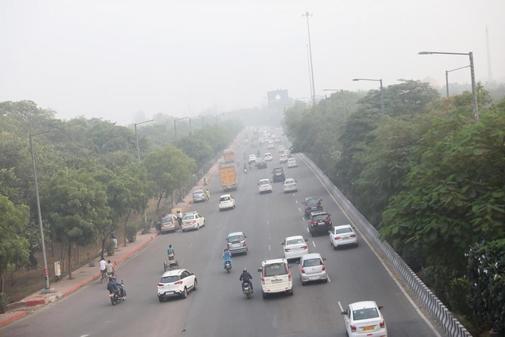- Delhi Irrespirable city
- Measures: India will spray water over New Delhi to combat the dangerous cloud of pollution that surrounds it
- Yamuna.The world's most polluted urban river
New Delhi on Monday imposed restrictions on the circulation of vehicles based on their registration numbers, in an effort to reduce toxic levels of pollution that have been described as emergency for public health.
"Hello Delhi! The odd and even (vehicles) plan starts today to reduce pollution . For your sake, for the health of your children and the breathing of your families, please respect the odd-even plan. Share car ", encouraged the head of Government of the Indian capital, Arvind Kejriwal, on Twitter.
The New Delhi authorities will only allow traffic on cars whose license plates end evenly on even days of the month, and odd vehicles on odd days, although there are some exceptions to the rule .
The drivers who travel alone or in the company of other women can circulate regardless of the registration number, like parents who are going to leave or pick up their children to school or two-wheelers, for example.
Like every winter in recent years, pollution levels have skyrocketed in recent days for several reasons and the Indian capital dawns every day under a toxic fog .
The arrival of the cold, the indiscriminate use of firecrackers on Diwali night - the festival of the Hindu New Year that was celebrated on October 27 - and the burning of stubble in the northern states of New Delhi contribute to the air of The irrespirable capital.
Local authorities have ordered the temporary closure of schools and the stoppage of all construction activities in the metropolitan area.
Data from the Central Pollution Control Office (CPCB) show that in the city center the concentration of PM 2.5 particles (the most dangerous for humans) was 672 per cubic meter of air at 7.00 local time (1.30 GMT), while the concentration of PM 10 particles was 735.
The WHO considers that concentrations above 100 PM 10 particles are dangerous for risk groups and above 300 consider air as toxic to humans.
According to the organism, exposure to these toxins increases the risk of acute respiratory infections, as well as heart disease, chronic lung disease and lung cancer.
The Indian Authority for Pollution Control and Prevention (EPCA) declared last Friday "a public health emergency" in the capital.
According to the criteria of The Trust Project
Know more- science
- Science and Health
- India
- Environment
Balearic Islands Students and teachers join forces in the face of the climate crisis
Environment Detect tap water contaminated with chemicals in California
HistoriasMar Menor: from Mediterranean paradise to animal cemetery

